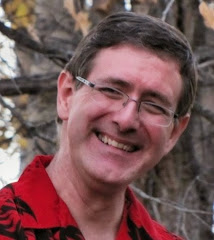Poor Jesus! He was wanting to be honest and open and transparent, and Peter wanted to play politics. “None of that honesty, Jesus, let’s say whatever it takes to build influence, you know, friends in high places” Peter said, and Jesus was so committed to brave, bold talk that he got hot under the collar with Peter, and scolded him in public. Hardly a Christian thing to do. But Jesus was making a point that they weren’t waging a popularity contest or a political campaign, they were building a new way of living in the world. One of radical rejection of what the world thinks is success, money, influence, power, none of that could hold a candle to what Jesus intended. We see this still happening in our world on a daily basis, people willing to say anything and promise anything for the sake of fame and fortune. People willing to poison their political opponents or sabotage their planes, destroy hospitals with children in them for the sake of peace, willing to promise anything in order to get elected. Or promote misinformation agendas that will hurt vulnerable minorities for the sake of power. People wanting to eliminate crosswalks intended on showing support to bullied teens. Jesus flatly rejected and denounced that when he scolded Peter.
Peter wanted Jesus to be as
influential as the religious leaders.
Jesus rejected that. It wasn’t
about comparing himself and building up a reputation. It was not about setting his mind on human
things, but on divine things. What does
that look like today?
Last month I had an
opportunity to set my mind on divine things with a wonderful group of ministers. 31 United Church clergy from BC to
Newfoundland joined with our Moderator the Right Reverend Dr. Carmen Lansdowne
in Five Oaks, Ontario, a retreat centre like Naramata Centre in the
Okanagan. Lansdowne is the first female
indigenous leader to be elected Moderator, and only the second indigenous
leader ever elected to that role. She is
also warm, funny, and passionate about the United Church. Using her indigenous lens of looking at the
world, she brings a fresh perspective to what it means to set our minds on
divine things. We spent a week wrestling
with what it means to be a Christian leader focused on taking up our crosses
and letting go of the need to be successful, or even worse, the need to be
right. We talked about and learned about
leadership best practices, ideas like figuring out what our strengths are. We talked about what we loved doing and what
was not so lovable about our jobs. We
talked about how all of us felt intimidated by the other bright minds in the
room and how we all came feeling like we were not good enough to be in such an
important program.
We also talked about the world
and how it has changed. In the sixties,
ladies wore hats and gloves and dresses to church. Jellied salads with everything from canned
peas, lettuce or marshmallows would show up at potlucks. No one had microwave ovens and a trip on an
airplane was a rare and special event where a complimentary meal was served by
women who looked like models. Today, we
still have potlucks, but the hats and gloves are long gone. And jellied salads might still show up, but
they tend not to have vegetables any more.
We talked about how hard it is
to preach good news in this changed world.
It’s like we keep serving jellied vegetable salad and the world looks at
it and goes yuck. Another analogy was
that of the goldfish swimming in their bowl.
Do we know what the water tastes like that we are swimming in?
We talked about how worship
has become something that is done privately.
And how it’s become something that people spend money on, crystals,
candles, and the like. It’s often an
individual focus – my faith in me is what makes me well. And I don’t need to do it with other people, because
that can lead to conflict. We’ve lost
faith in social organizations. Guides
and scouts, Canadian Legion, Rotary, Lions, even the armed forces and the RCMP
struggle to recruit new people. We’ve
also lost our sense of the sacred and focus mostly on the practical, the
measurable, the obvious. No wonder congregations are struggling in today’s
culture! We stand for values and
community and public spirituality.
Everything that our society has moved away from.
Jesus would have said to us,
even though Society has moved away from God, even though the world focuses only
on the material, even though it’s only about the individual, that we are to set
our minds on divine things, not on earthly concerns. Our last day in Ontario, we heard that
message from none other than Rev. Michael Blair, who is the United Church’s
General Secretary. He told us that we
have become focused only on the decline of the church, something that has been
happening since 1964. And yet he is
seeing new opportunities and new missions rising up. The church is committed to planting 100 new
communities of faith, one of which has already started in Edmonton, a
first-nations led group that meets in the old Beverly United Church. Other projects and groups are doing exciting
things in the name of Jesus in our denomination. He said that we are too
focused on the cross, and not on divine things.
It’s easy to only believe in death and it’s hard to believe in
resurrection. Even Jesus struggled with
that.
Rev. Blair called us to keep
focused on divine things through our faith communities because that's where we find Christ with us. We are not alone in our spiritual
journeys. God is with us. We easily forget that as we swim in our
fishbowls or serve jellied salads or learn better recipes to serve. But in the cross and the
resurrection, in life, in death, in life beyond death, we are not alone. Thanks be to God!







